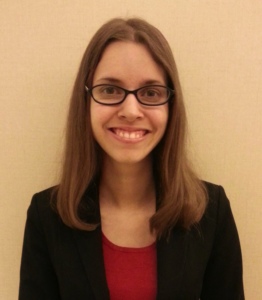News
Cassy Smith: From astronomer to WW Teaching Fellow
 Before she entered the classroom as a physics teacher, Cassy Smith made some impressive discoveries in the field of astronomy. Prior to earning her master’s degree from Kennesaw State University as a 2015 WW Georgia Teaching Fellow, Dr. Smith completed a master’s degree in physics and a PhD in astronomy at Georgia State University. There, she also worked as an astronomy research and teaching assistant using her programming skills to write code to search for exoplanets and stellar companions around low mass stars.
Before she entered the classroom as a physics teacher, Cassy Smith made some impressive discoveries in the field of astronomy. Prior to earning her master’s degree from Kennesaw State University as a 2015 WW Georgia Teaching Fellow, Dr. Smith completed a master’s degree in physics and a PhD in astronomy at Georgia State University. There, she also worked as an astronomy research and teaching assistant using her programming skills to write code to search for exoplanets and stellar companions around low mass stars.
Her research resulted in the groundbreaking discovery of a planet that circles AU Microscopii, a nearby star still surrounded by a disk of debris left over from its formation. One of over a hundred scientists, Dr. Smith collected data from NASA’s Transiting Exoplanet Survey Satellite (TESS) and the retired Spitzer Space Telescope. Her work culminated in findings published in Nature Research and featured in a NASA press release.
“It gives me a lot of confidence,” Dr. Smith says about how her background in astronomy research has informed her teaching. “It’s great that I walk into the classroom and, in addition to being a teacher, I’m also a researcher, a physicist, and an astronomer. I think I carry that into the classroom with me to be a great role model.”
She is especially proud that her professional experiences can serve as inspiration for her female students to view science as a viable career. “They can see that I really did science,” says Dr. Smith. “If only one of my students decides that they love science when they didn’t even know they did; if I did something cool in class or told them they’re awesome and that helped them make a connection—then it’s all worth it.”
Dr. Smith also brings her many connections with her to the classroom—her students have opportunities to speak directly to scientists, attend talks, and are exposed to how science is used in the real world. “Sometimes I say, ‘instead of this classroom assignment, attend this talk and tell me about what you’ve learned,’” she says. “That way, my students get to learn what’s currently happening in the world of science.”
For her former students at Eagle’s Landing High School and Decatur High School, where she currently teaches, these experiences are invaluable. Having a teacher who can bring her professional STEM experiences and connections into the classroom to make science come alive makes a significant difference in students’ attitude towards science. This is what drives her to continue teaching.
“For postdocs, research is their number one focus. That’s not what makes me happiest in life,” she says. “For me, it’s when I see those sparks when a student does an activity or learns something for the first time and gets excited—that gives me butterflies.”
Of course, the traditional rewards of teaching and being physically present in school have shifted with the coronavirus outbreak and students and teachers having to move to remote or hybrid learning.
“I think my students really miss their friends, and the social aspect of school. Seeing smiles or the little conversations you might have—you don’t necessarily get that virtually,” says Dr. Smith. However, she stresses that students still can learn, and in different ways too—she’s incorporated many new platforms and approaches into her teaching that she might not have otherwise.
In addition to engaging learning, Dr. Smith has created more personal connections with her students, despite the distance. She writes postcards, sends birthday emails, and makes time for virtual tutoring sessions. “It’s been a different experience, but a good one,” she says.
While she’s able to find opportunities in a difficult situation, Dr. Smith acknowledges that teaching isn’t always smooth sailing. Regardless, she says she wants to teach for the rest of her life.
“I think it’s important that people know WW Teaching Fellows did amazing things before we got selected for the program,” she says. “I’m a researcher. Just in my program, we had a veterinarian, a chiropractor, someone who worked at the CDC… We did really cool stuff before becoming WW Teaching Fellows, and that part of us stays with us and we take that into teaching.”

